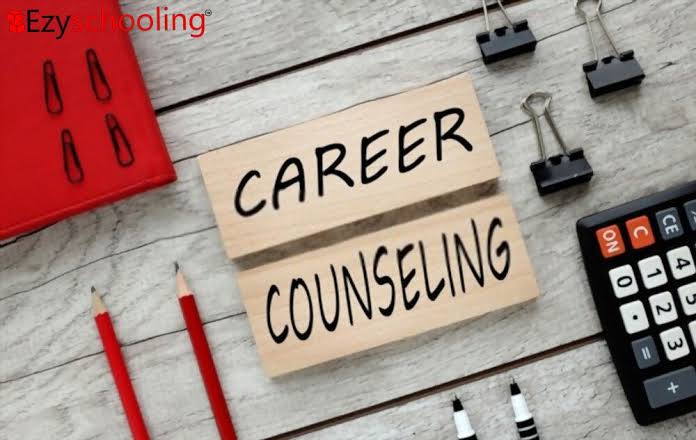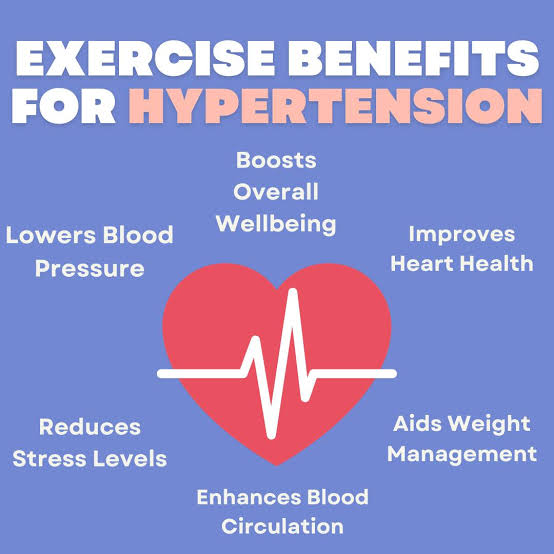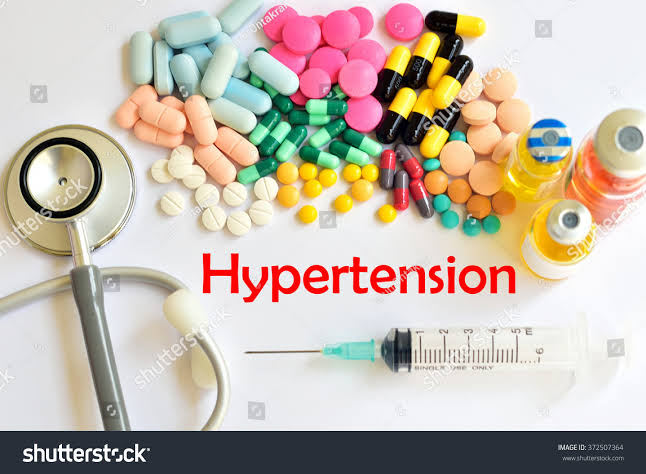Empower adolescents with career counselling to explore interests, set goals, and make informed decisions about their future career paths.
Introduction
Career counselling for adolescents is no longer a luxury—it’s a necessity in today’s competitive, challenging, and evolving world. This is very teal and bribing picture that, employment opportunity gradually decreasing in both Govt. as well as Private sector in world based.
Moreover for fulfillment of existing vacancies required different dimensional skills and specific qualification. With rapidly changing career trends, technology advancements particularly application of AI, and the growing pressure to succeed, adolescents often find themselves confused about their career paths.
Smart career counselling bridges the gap between confusion and clarity; facilitating teens make more informed confident choices about their futures.

In this article, we delve into smart career counselling tips for adolescents, explore their importance, benefits, strategies, and expert techniques with expected outcomes to empower teens toward success.
Addressing the Problem
The young, productive people are living in a society where there is little scope as well as complexity to build sustainable career opportunities. In this connection, guidance has played a very crucial and fostering role as motivating support, creating the opportunities for smart career choice options, and preventing school dropout and proper training as per requirement.
Students or their family members may give priority to conventional education over VET, while VET pathways might very well be the best fit for a student’s preferences or priorities, attitudes, learning style, and capabilities—allowing students to properly explore their potential and take better advantage of career opportunities. Guidance avoids the usual biases about learning pathways, putting the focus on personal skills and interests.
In VET, always have the vocational nature and specification at a high level that offers various choices in this learning track. Guidance can be facilitated for navigation of options of VET and the often complex application procedures.
Appropriate guidance helps young people understand their learning needs and career preferences based on their strengths and characteristics rather than stigmatizing them as “bad students” and generating feelings of inadequacy.
Appropriate proper guidance facilitate young students to comprehend their learning needs and career preferences in respect of their strengths and characteristics rather than stigmatizing them as “bad students” and generating a sense of inadequacy
It can foster young students to have an active, more engaging approach to education and learning in general.
Support during studies acts as a crucial role for a successful learning path. Such support may involve help with the choice of a specialization, the transition to the workplace (e.g., for work-based learning), or networking into the occupational community, among other aspects.
Prevalence of Career Counselling for Adolescent India –
In India, it is now highly recognized that career counselling for adolescents is day by day gradually increasing its demand and acts as a crucial role for making informed career decisions, but it still remains in a limited position.
While many students benefit from career guidance, a significant percentage still lacks access to professional counselling, particularly in schools.
Key findings about career counselling in India:
High Need:
A large proportion of students, over 80%, report that career counselling is beneficial.
A publication prevalence report in this regard in the journal International Journal of Research of Bharathiar University Coimbatore, Tamil Nadu, in the year 2022, found that among the respondents of government and private schools, 60.7% of them had not received any career guidance at the school level, and 90% of them opined that they were in need of career guidance at the school level.
In India, 73 percent of students begin career discussions with their parents between the ages of 10 and 14, with conversations often centring around employability and financial planning.
Early Discussions:
Many students (73%) begin discussing career options with their parents between the ages of 10 and 14.
Limited Access:
A substantial number of schools, particularly in the public sector, lack dedicated career counsellors.
Counsellor Shortage:
India faces a significant shortage of trained career counsellors, with some reports indicating a counsellor-to-student ratio as high as 1:1000 or more, especially in public and rural schools.
Benefits of Counselling:
Career counselling helps students identify necessary skills, align career goals with skill development, and understand available career paths and educational options.
Role of Technology:
There’s growing potential to leverage AI and other technologies to improve access to personalized and student-centered career guidance.
Focus on Disadvantaged Students:
Studies highlight the importance of targeted interventions for disadvantaged students and girls, who may experience greater career indecision.
Counselling Needs:
Adolescents need guidance on academic, personal, social, and career-related issues during this transitional phase of life.
Factors Influencing Prevalence:
Socioeconomic Factors:
The prevalence of accessing career counselling among the young students, the socioeconomic background, and the type of school attended may be crucial factors.
School Resources:
The availability of career guidance services is often linked to the resources and infrastructure of the educational institution.
Parental Influence:
Parents play a significant role in career decisions, but professional guidance can provide more comprehensive support.
Integration in Schools:
There’s a growing movement to integrate career counselling into school curricula and provide more structured guidance services.
Defining Career Counselling
A career is essentially the sum total of an individual’s work experiences in a specific field or across multiple fields. Career counselling is a branch of counselling that deals with mentoring/coaching on issues related to an individual’s career. It is educational and occupational in nature and basically helps individuals in making rational choices about their career development.

Career counselling encompasses
Career Development:
Emphasizing learning about, preparation for, entry into, and progress in the world of work
Career Education:
Educating an individual regarding various ways for ensuring career development and thus, preparing him/her to get into the world of work (this is one of the primary responsibilities of a school)
Career Guidance:
Guiding an individual with the help of assessments and other activities aimed at facilitating career planning and related decision-making
Career Coaching:
Helping individuals to set goals, identify procedures to achieve their goals, and evaluate related progress
Occupational Information:
Providing information concerning training and related educational programs, careers, career patterns, employment trends, and opportunities
Vocational Education:
Education that prepares an individual to work in a vocational or technical field
Career Counselling for Adolescents
Adolescence is a phase of transition as adolescents prepare to step into adulthood. Choosing a career is an important part of this transition. Career counselling can help adolescents gain greater understanding of themselves, their areas of interest and ability, and their aptitudes; it can help strengthen their ability to explore options and decision-making skills.
Objectives of the career counselling for adolescents
· Helping adolescents identify their own areas of interest (vocational/occupational), abilities, and aptitudes
· Providing information about possible educational courses and career options matching their areas of interest
· Creating awareness about possible career options and promoting related dialogue among students, parents, and teachers at secondary and senior secondary education levels.
Why Career Counselling Matters for Adolescents in Today’s World
Adolescents are at a stage of self-discovery. They are exploring their interests, values, strengths, and aspirations. However, without proper guidance, they may fall into unsuitable careers due to peer pressure, parental expectations, or lack of awareness.
Apart from that, the academic experience of a student is no longer limited to typical professional options. The emergence of varied sectors such as artificial intelligence, graphic design, freelancing, SEO expertise, and environmental research has created unlimited options. However, navigating these options can be daunting.
Avoiding Career Confusion
It is widely observed that students are frequently confronting the situation in the questions regarding their future employment opportunities and possibility of absorption. In this situation, career counseling is the only way to navigate this situation, because it is the only scientific process or approach to determine individuals’ interests and match them with appropriate job opportunities.

Reducing Academic Pressure
In many metropolitan cities in India, like Kolkata, many students are under intense pressure to excel in specialized disciplines such as medicine or engineering. Career counseling allows individuals to explore unconventional but rewarding possibilities, lowering the stress of achieving false expectations.
Adapting to Changing Job Markets
With sectors continually expanding, career counseling provides students with the skills and knowledge required to thrive in today’s workforce.
Exploration and Identity Formation:
Adolescents are discovering their interests, values, and strengths. Career counseling helps them explore various career options and identify potential paths.
Informed Decision-Making:
Career counselling provides adolescents with relevant information on career options, industries, job roles, skill up gradation, and educational pathways to make informed decisions about their future academic and career pursuits.
Development of Career Goals:
Career counselling helps adolescents set realistic and achievable career goals, aligning with their strengths, interests, and values. In a single word, a goal should be SMART.
Improved Academic Performance:
Career counselling can motivate adolescents to perform better academically, as they understand the relevance of their studies to their future careers.
Enhanced Self-Awareness:
Career counselling fosters self-awareness, enabling adolescents to understand their strengths, weaknesses, and learning styles for meeting up with their self-identity crisis.
Better Preparation for the Future:
Career counselling prepares adolescents for the challenges and opportunities of the rapidly changing workforce.
Reduced Anxiety and Stress:
Career counselling can alleviate anxiety and stress related to career choices and future uncertainty.
Increased Confidence:
Career counselling empowers adolescents to make informed decisions, boosting their confidence and self-esteem.

Key Benefits of Career Counselling for Teens
Professional career counsellors can support people with career-related challenges in many ways. For Instance:
- They can help clients look at the bigger picture-Le. evaluate their qualification, experience, strengths and weakness with respect to desired vocation /occupation, the job market and other contextual aspects
- Through their counselling and teaching abilities, career counsellors can additionally support clients in gaining a better understanding of what really matters for them personally, how they can plan their careers autonomously, or help them in making tough decisions and getting through times of crisis
- Career counsellors can support their clients in finding suitable placements/jobs, in working out conflicts with their employers or accessing other services as needed
- Counselling introduces teens to a variety of career fields beyond traditional ones.
- Students learn to make data-driven, well-researched decisions.
- A clear plan of action boosts self-esteem and reduces anxiety.
- Early guidance avoids regret or career dissatisfaction in the future.
Career Readiness
The ability of a person to effectively navigate pathways that connect education and employment to achieve a fulfilling, financially-secure and successful career is termed as career readiness.
Being career ready in today’s constantly changing economy requires adaptability and a commitment to lifelong learning as well as mastery of key academic, technical and workplace knowledge.
Career counselling can help clients understand the value and practice career readiness.
Smart Career Counselling Tips for Adolescents by Career Counsellor
1. Start Early but Not in a Hurry
Introduce career exploration by early adolescence (13–15 years) but avoid pressuring teens to choose prematurely.
2. Use Career Assessment Tools
Tools like MBTI, Holland Code, and Aptitude Tests provide insight into interests, personality, and skills.
3. Involve Parents Carefully
Include parents in the journey but ensure the child’s voice remains central to the decision-making process.
4. Explore Non-Traditional Careers
Expose teens to emerging careers like AI development, ethical hacking, digital marketing, content creation, etc.
5. Encourage Internships and Volunteering
Hands-on experiences give clarity and enhance CVs.
6. Teach Goal Setting and Planning
Use SMART goals to help teens outline academic and career targets.
7. Incorporate Real-World Exposure
Encourage teens to attend career fairs, webinars, or informational interviews with professionals.
8. Focus on Strength-Based Approach
Emphasize what the teen does well instead of areas of weakness.
9. Promote Emotional Intelligence (EQ)
EQ helps teens handle stress, failures, and communication challenges in their career journey.
10. Discuss Financial Realities
Help teens understand the costs of education, earning potential, and job market trends.
11. Don’t Rely Solely on Academic Performance
Grades matter, but skills, creativity, and drive are equally important.
12. Use Technology for Exploration
Platforms like LinkedIn, Coursera, YouTube Career Channels, and Skillshare can provide insights and up skilling.
13. Normalize Career Shifts
Teach teens that changing direction is okay. Flexibility is a strength.
14. Promote a Growth Mindset
Failure is part of learning. Resilience leads to long-term success.
15. Use Career Storytelling
Inspire teens by sharing journeys of successful people in varied fields.
16. Focus on Skill-Based Careers
Not all great careers require traditional degrees—skills in coding, design, photography, and social media are highly valued.
17. Create a Career Vision Board
Visualize goals and milestones using images, quotes, and timelines.
18. Encourage Continuous Learning
Career success demands lifelong learning. Instill curiosity and passion for knowledge.
19. Build Strong Communication Skills
Public speaking, writing, and networking are career boosters for any field.
20. Connect with Certified Career Counsellors
A trained professional brings expertise, objectivity, and customized planning for success.
Duties of a Career Counsellor
A career counsellor must fulfil the following duties.
- Meet adolescents regarding educational and vocational matters and help them identify their areas of interest and further educational and/or job opportunities
- Provide relevant information and other support may include sharing pamphlets, school/college application forms and catalogues, job applications and other documents)
- Mint has contact with individuals/agencies such as business owners, college administrators, parents of students and other key actors.
- Learn about and share information and answer questions about possible sources of financial aid, scholarships etc and the procedures for applying for such support
- Maintain detailed files about each adolescent and make necessary updates during follow up
How Parents Can Support Their Child during Career Counselling
The journey of career counselling for adolescents becomes more effective with active parental involvement.
Here are some methods to support your child:
Be Open-Minded
Avoid pushing your child into a career based solely on your expectations. Instead, listen to their aspirations and allow them to explore diverse opportunities.
Encourage Participation
Motivate your child to attend career counselling sessions, workshops, or internships. Exposure to several professions allows individuals to make informed selections.
Trust the Experts
Professional counsellors use psychometric tests and in-depth assessments to provide accurate guidance. Trust the process and give your child the space to discover their true potential.
Regular Communication
After each counselling session, discuss the findings with your child. Encourage them to express their opinions and discuss any issues they may have.
Role of Schools and Communities
Schools must integrate career counselling into the curriculum through
- Dedicated counsellors
- Career planning workshops
- Regular seminars with professionals
- Parent-student counselling sessions
Career counsellors attached to schools may also have to
· Undertake group sessions on career planning for specific classes.
· Take on the role of guidance counsellor and provide crisis intervention for students, sponsor after-school activities, and provide counselling services for various needs.
Communities can support adolescents by:
- Offering internships and mentoring programs
- Organizing career awareness camps
- Providing scholarships and training
The Digital Age and Career Counselling
Today, adolescents are digital natives. Smart counselling should embrace
- Virtual counseling platforms
- Career planning apps
- AI-based career guidance tools
- Gamified self-assessments
- Digital resume and portfolio building
Blending traditional values with modern tools ensures relevance and reach.
Career Testing
Career counselling can strongly benefit from the use of aptitude tests or career testing. These tests help shortlist possible job options that match the attributes of the person being tested. It does so by referencing people with similar personalities who enjoy/are successful at their jobs.
Psychometric testing is one of the key means of career testing. It uses in-depth psychological profiles to assess personality and cognitive functioning (i.e., aptitude, interest, attitudes, intelligence, etc.). Significantly, it also helps assess skills. Personal goals, strengths, and weaknesses can also be understood.
Career Counselling for Individuals with Disabilities
Adolescents with disabilities constitute a particularly vulnerable group as they have to cope with the pains and pressures of adolescence along with the implications of their disability.
The career counsellor should help them in assessing their areas of vocational and occupational interest and match these with their skills and abilities.
He/she may be empathetic and sensitive in explaining options and helping adolescents to arrive at the appropriate decision. He/she should also share information about the provisions and benefits that persons with disabilities are entitled to.
Challenges in Career Counselling
One of the major challenges associated with career counselling is encouraging participants to fully engage with the process.
Also, some clients may prefer to rely on the advice of peers rather than accept interventions/inputs provided by the professional career counsellors. This is particularly true for adolescents. They may feel that their peers and other acquaintances know them better and can give more accurate advice.
Of course, many people do play a formal/informal role in giving career advice—i.e., parents, teachers, managers, trainers at the workplace, etc.
Nonetheless, the career counsellor can provide specialized inputs and guide the adolescents in a balanced manner; he/she should be able to build such a relationship wherein the adolescent can recognize the value of his/her inputs.

Recommendations for Career Counselling in India:
Integrate Career Counselling:
Increase the presence of career counsellors in schools and educational institutions.
Train Counsellors:
Expand training programs for career counsellors to address the growing demand.
Utilize Technology:
Integrate AI and other technologies to provide accessible and personalized career guidance.
Address Disparities:
Focus on providing tailored support to disadvantaged students and girls, who may face unique challenges.
Expected Outcomes
The role of career guidance in preventing early leaving is widely acknowledged. Research suggests that students who have a career plan are more likely to engage positively in education.
Systematic career education and guidance can also help at transition points—to other levels and pathways of education and training, to work, or to a related occupation.
Quality early and persistent career guidance is particularly important to support young people in choosing VET as a positive option, rather than ‘ending up’ in VET due to a negative selection process. The following outcomes can be expected.
Conclusion
Smart career counselling empowers adolescents to dream big and plan wisely. It equips them with clarity, direction, and confidence to navigate the complex career world. As educators, counsellors, and parents, we must nurture their potential and help them shape a fulfilling, future-ready career.
Career counselling is not just about helping students choose a career—it’s about empowering them to reach their full potential. Different metropolitan cities of India, like Kolkata, where the pressure to excel is high, professional counselling provides clarity and confidence, allowing students to thrive in their chosen fields.
Encouragement and support from parents can have a significant impact. Start your child’s journey with career counselling for students in Kolkata today and help them pave the way to a successful and fulfilling future.
FAQs on Career Counselling for Adolescents
1. What is career counselling for adolescents?
Career counselling helps teens identify suitable career paths based on interests, skills, and personality.
2. Why is early career counselling important?
It prevents confusion and wrong choices, giving students enough time to plan and prepare.
3. At what age should career counselling start?
An age 13 to 15 is an ideal time to begin exploring interests and abilities.
4. What tools are used in career counselling?
Aptitude tests, personality assessments, interest inventories, and goal-setting frameworks.
5. How can parents support career counselling?
By being open-minded, listening, and encouraging exploration without imposing choices.
6. Are there careers beyond engineering and medicine?
Yes, including data science, digital media, entrepreneurship, environmental science, etc.
7. Can a student switch careers later in life?
Absolutely. Career paths today are flexible and evolving.
8. Is academic performance the only factor in career choice?
No, skills, interests, values, and passions matter just as much.
9. How do I know what career suits me?
Through structured assessments and guided exploration.
10. Can career counselling help with job readiness?
Yes, it builds essential skills and provides a roadmap to gain experience and exposure.
11. Are online career counselling services reliable?
Many are. Look for certified professionals or platforms with positive reviews.
12. What if I still feel confused after counselling?
That’s normal. Clarity comes with time, reflection, and experience.
13. What role does personality play in career choice?
A big one. For instance, extroverts may thrive in social careers, introverts in research-based ones.
14. Can career counselling reduce peer pressure?
Yes, by boosting self-awareness and helping teens follow their own path.
15. How do internships help in career planning?
They offer real-world exposure, helping teens understand roles, responsibilities, and work environments.
16. Do all schools offer career counselling?
Unfortunately, no. But external counsellors and online services can fill the gap.
17. How long does career counselling take?
It varies—usually 2–5 sessions, but it’s a continuous process through adolescence.
18. What if my interest doesn’t match parental expectations?
Counselling facilitates healthy dialogue to balance aspirations and concerns.
19. Can career counselling help with mental health?
Yes, reduced stress and increased clarity improve emotional well-being.
20. Where can I find certified career counsellors?
Check school recommendations, online platforms like Mindler, Career Guide, or talk to a local psychologist.










